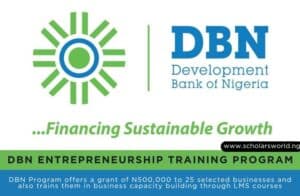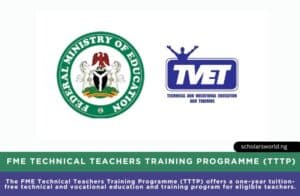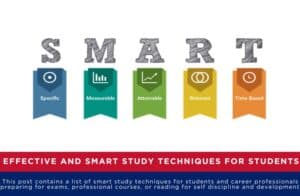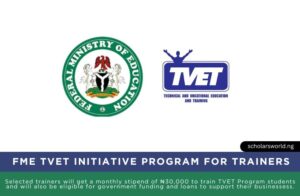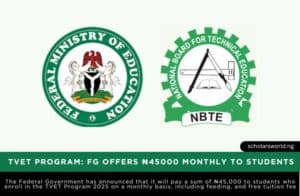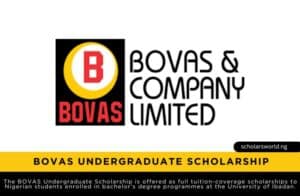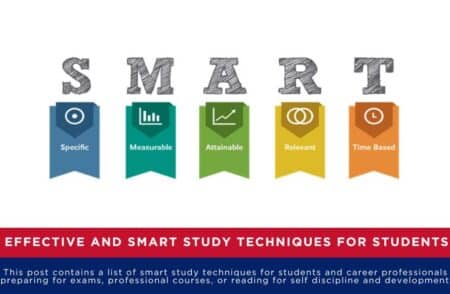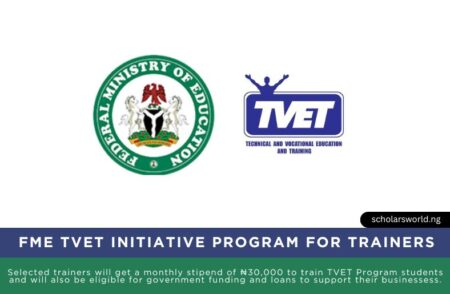Top 12 Success Books: IMPROVE YOUR CAREER AND FINANCES.
Are you eager to know more about the Top 12 Books for Success?
We are live on Twitter! Join our fast-growing community of scholars on X!@ngscholarsworld
— Scholars World (@ngscholarsworld) November 11, 2023
Kindly follow us, like, and share our posts to help reach a larger audience. #Scholarship #UK #EducationUSA
Reading books authored by those who have achieved success is essential for your own success journey.
Leaders are often avid readers, so it’s time to actively participate in your own life’s success story.
Navigating Your Path to Success: Book Recommendations
We all strive for progress and advancement. Reflect on your progress and plan for more.
Motivate and inspire yourself by committing to reading at least one book annually.
Books won’t guarantee success, but they open doors to limitless possibilities. They refresh your goals throughout the year.
Here, we explore 12 essential reads for a successful life.
Top 12 Books for Success: Recommended Reading List
1. “The Law of Human Nature” by Robert Greene
This book teaches how to turn self-awareness into a powerful career and business tool. Understand people’s true intentions and harness your dark side for influential and persuasive capabilities.
Greene delves into the aspects of human nature that often go unnoticed or are misunderstood, such as the reasons behind people’s actions and the subconscious biases that influence their decisions.
For students and entrepreneurs, this knowledge is invaluable. It helps in navigating complex social networks, understanding consumer behavior, and managing personal relationships.
Moreover, Greene’s book is filled with historical examples and psychological insights, making it a treasure trove of knowledge. For instance, he discusses how understanding one’s own darker tendencies – such as envy or aggression – can lead to greater self-awareness and control.
This insight is particularly useful for young professionals and entrepreneurs who must often make quick, high-stakes decisions.
In addition, Greene’s emphasis on observing and understanding others offers a strategic advantage in negotiations and leadership. For instance, by recognizing the subtle signs of dishonesty or discomfort, one can navigate social and business interactions more effectively.
This book, therefore, is not just a guide to human nature but a manual for developing a sharper, more empathetic understanding of the world.
2. "Elon Musk" by Ashlee Vance
Ashlee Vance’s biography of Elon Musk is more than just a chronicle of an extraordinary life; it’s a source of inspiration and a blueprint for innovation and resilience.
The book tracks Musk’s journey from his early days in South Africa to his status as a leading global entrepreneur.
Students and young entrepreneurs can draw inspiration from Musk’s unwavering determination, his ability to envision and work towards a future that others can’t see, and his resilience in the face of setbacks.
Vance’s detailed account of Musk’s ventures into companies like SpaceX, Tesla, and SolarCity not only highlights the spirit of innovation but also underscores the importance of sustainability and vision in business.
For example, Musk’s commitment to renewable energy and space exploration showcases how entrepreneurial ventures can align with larger societal and environmental goals.
This is particularly relevant for young minds eager to create businesses that not only generate profit but also contribute positively to the world.
Moreover, the book doesn’t shy away from discussing the challenges and failures Musk faced. From near-bankruptcy to personal hardships, Musk’s journey is a testament to the power of perseverance.
This aspect of his story is especially motivating for young entrepreneurs, reminding them that setbacks can be stepping stones to greater successes.
MUST READ
3. "Smarter, Faster, Better" by Charles Duhigg
Charles Duhigg’s “Smarter, Faster, Better” is a masterclass in productivity and efficiency, crucial for students and budding entrepreneurs.
The book explores eight key productivity concepts through compelling narratives, ranging from the story of a pilot handling a crisis to a teacher improving her students’ test scores.
These stories are not just engaging; they offer practical insights into how we can transform our habits, decision-making, and teamwork.
One of the book’s core lessons is the power of goal setting and decision-making. Duhigg uses real-life examples to show how setting SMART (Specific, Measurable, Achievable, Relevant, and Time-bound) goals can lead to significant improvements in personal and professional life.
For students, this approach to goal setting can transform their academic performance, while for entrepreneurs, it can be the difference between a thriving business and a failing one.
Duhigg also delves into the psychology behind productivity, drawing from neuroscience and behavioral psychology.
He explains, for instance, how a sense of control over our work can significantly improve our productivity and satisfaction.
This insight is particularly valuable for young professionals who may feel overwhelmed in fast-paced or high-pressure environments.
By understanding and applying these principles, they can not only increase their output but also enhance their well-being.
These books, each in its unique way, offer a wealth of knowledge and practical advice for young minds eager to make their mark in the world.
Whether it’s understanding the intricacies of human behavior, drawing inspiration from one of the greatest entrepreneurs of our time, or mastering the art of productivity, these readings are an essential part of any aspiring leader’s journey.
4. "Thinking, Fast and Slow" by Daniel Kahneman
Daniel Kahneman’s “Thinking, Fast and Slow” is a groundbreaking exploration of the dual systems of our brain: the fast, intuitive, and emotional System 1, and the slower, more deliberative, and logical System 2.
This book is particularly beneficial for students and entrepreneurs as it provides deep insights into the decision-making processes that affect our personal and professional lives.
Kahneman, a Nobel laureate in Economics, uses a blend of psychology and economics to explain how these two systems shape our judgments and choices.
One of the key takeaways for young minds is the understanding of cognitive biases and heuristics. For example, Kahneman discusses the ‘anchoring effect,’ where people rely too heavily on the first piece of information they hear.
In a business context, this could lead to skewed negotiations or pricing strategies. Understanding such biases helps entrepreneurs and students make more informed and rational decisions.
Additionally, Kahneman’s book challenges the notion of human rationality in economics, which is a crucial lesson for young entrepreneurs looking to understand market behavior and consumer decisions.
His insights on risk-taking and loss aversion, for instance, are invaluable for anyone involved in investment or business strategy.
5. "How to Win Friends and Influence People" by Dale Carnegie
Dale Carnegie’s timeless classic, “How to Win Friends and Influence People,” is a vital resource for anyone looking to improve their social skills and personal influence.
For students, entrepreneurs, and young professionals, the principles outlined in this book are fundamental for networking, leadership, and relationship building.
Carnegie’s book teaches key skills like how to communicate effectively, listen empathetically, and make others feel valued and important.
These skills are crucial in today’s collaborative and team-oriented work environments. For instance, Carnegie’s advice on providing honest and sincere appreciation can help build strong teams and foster a positive work culture.
Moreover, the book offers strategies for persuading people and winning arguments in a way that maintains relationships rather than destroying them.
This is particularly beneficial for entrepreneurs who need to negotiate deals, persuade investors, or sell ideas to a team.
6. "Lean In: Women, Work, and the Will to Lead" by Sheryl Sandberg
Sheryl Sandberg’s “Lean In” is a compelling call to action for women in the workplace. This book is particularly significant for young women aspiring to leadership roles.
Sandberg, COO of Facebook, combines personal anecdotes with extensive research to discuss the challenges women face in professional environments.
One of the book’s strengths is its discussion on the importance of self-confidence and assertiveness for women in the workplace.
Sandberg encourages women to ‘sit at the table,’ metaphorically speaking, and be more vocal about their achievements and aspirations.
This advice is crucial for young minds looking to break through gender stereotypes and excel in their careers.
Additionally, “Lean In” addresses issues like work-life balance and the importance of finding supportive partners and mentors.
This is particularly relevant for female entrepreneurs who often face the challenge of juggling multiple roles.
Sandberg’s open discussion of her own experiences provides a relatable and motivating guide for young women navigating their career paths.
These six books collectively offer a wealth of knowledge, inspiration, and practical advice for young minds in various stages of their personal and professional development.
From understanding the complexities of human behavior and decision-making to mastering social skills and confronting gender biases in the workplace, these reads are indispensable for anyone aspiring to lead and make a positive impact in their field.
7. "The 7 Habits of Highly Effective People" by Stephen R. Covey
Stephen R. Covey’s “The 7 Habits of Highly Effective People” stands as a cornerstone in the personal development genre.
This book is crucial for students, entrepreneurs, and young professionals aiming to develop a strong foundation for effectiveness and leadership in their personal and professional lives.
Covey introduces seven habits, starting with ‘Be Proactive,’ emphasizing the importance of taking responsibility for our own lives.
This habit is particularly relevant for entrepreneurs who must often navigate uncertain environments and make decisions without a roadmap. It teaches the value of initiative and self-direction.
Another key habit, ‘Begin with the End in Mind,’ is about setting long-term goals and having a clear vision.
This is vital for young minds setting out on their career paths, highlighting the importance of aligning daily actions with overarching objectives. It’s a call to live life by design, not by default.
The habit ‘Synergize’ focuses on the power of collaborative teamwork. Covey argues that the whole is greater than the sum of its parts, which is an essential lesson for students working on group projects and entrepreneurs building their teams. It underlines the importance of valuing differences and leveraging collective strengths.
8. "Rich Dad Poor Dad" by Robert T. Kiyosaki
In “Rich Dad Poor Dad,” Robert T. Kiyosaki offers a new perspective on money and investing that contradicts conventional wisdom.
This book is particularly valuable for young entrepreneurs and students as it lays the foundation for thinking about assets and liabilities, and the importance of financial literacy.
Kiyosaki, through the contrasting advice of his ‘rich dad’ and ‘poor dad,’ stresses the importance of financial education.
He encourages young minds to understand the difference between assets that put money in your pocket and liabilities that take money out.
This understanding is crucial for making informed financial decisions in both personal and business realms.
The book also delves into the mindset differences between employees and entrepreneurs.
Kiyosaki argues that to achieve financial independence, one must learn to think like an entrepreneur – taking risks, investing in one’s financial education, and looking for opportunities to create wealth.
9. "The Lean Startup" by Eric Ries
Eric Ries’ “The Lean Startup” has become a bible for entrepreneurs and innovators.
This book is incredibly relevant for students and young entrepreneurs as it provides a methodical approach to launching and managing a successful startup.
The core of Ries’ philosophy is the ‘build-measure-learn’ feedback loop. This approach encourages startups to start with a minimum viable product (MVP), test it in the market, and then iterate based on feedback.
This methodology reduces market risks and ensures that the product or service is aligned with customer needs.
Ries also introduces concepts like ‘pivoting,’ which is crucial for young entrepreneurs. Pivoting refers to making a fundamental change to the business direction when you realize the current path is not sustainable.
This concept teaches resilience and flexibility, essential traits in the unpredictable world of startups.
In these three books, Covey, Kiyosaki, and Ries offer powerful strategies and philosophies for personal development, financial intelligence, and entrepreneurial success.
They provide essential frameworks for young minds eager to carve out their paths in the world, highlighting the importance of proactive mindset, financial savvy, and agile approaches in business.
These readings are not just informative but transformative, equipping the next generation of leaders with the tools and mindsets needed to thrive in an ever-changing landscape.
Scholarships for You
10. "How to Win Friends and Influence People" by Dale Carnegie
Dale Carnegie’s timeless classic offers fundamental techniques in handling people, ways to make people like you, and how to change people without arousing resentment.
This book is a treasure trove of wisdom for students, entrepreneurs, and young minds alike. It teaches the art of communication and persuasion – skills that are crucial in any field.
Whether it’s networking, selling, or managing relationships, Carnegie’s advice helps in building rapport and positively influencing those around you.
11. "Think and Grow Rich" by Napoleon Hill
Napoleon Hill’s “Think and Grow Rich” is based on the idea of personal development and self-improvement.
This book, a result of Hill’s study of many individuals who had amassed personal fortunes, outlines the thirteen key principles for success. For students and young entrepreneurs.
The book is a guide to developing a success-oriented mindset, setting and pursuing goals, and overcoming personal barriers.
It emphasizes the power of personal belief and its role in achieving success.
12. "The Power of Habit" by Charles Duhigg
In “The Power of Habit”, Charles Duhigg explores the science behind why habits exist and how they can be changed.
This book offers insightful analysis into the nature of habits in our personal lives, our businesses, and our communities. For students and entrepreneurs, understanding habits can be a key to learning more effectively, building better products, and developing stronger organizations.
The book’s blend of academic findings and real-world stories provides a comprehensive look at how habits work and how they can be transformed.
Other Recommended Texts
13. “Outliers: The Story of Success” by Malcolm Gladwell
Malcolm Gladwell’s “Outliers” examines the factors that contribute to high levels of success.
Gladwell argues that successful people don’t do it alone; their success is also a product of the culture, family, generation, and the idiosyncratic experiences of their upbringing.
For young minds, this book is an eye-opener to the broader societal and environmental factors that contribute to success, encouraging a more holistic view of achieving one’s goals.
“Atomic Habits” by James Clear
In “Atomic Habits”, James Clear reveals how the most effective way to change your habits is to focus not on what you want to achieve, but on who you wish to become.
This book is especially useful for students and young professionals, as it provides
Conclusion: Building a Foundation for Future Success
These top 12 books for success provide a wealth of knowledge and inspiration, crucial for students, entrepreneurs, and young professionals.
They offer practical advice, motivational stories, and essential life skills to help navigate the path to success.


